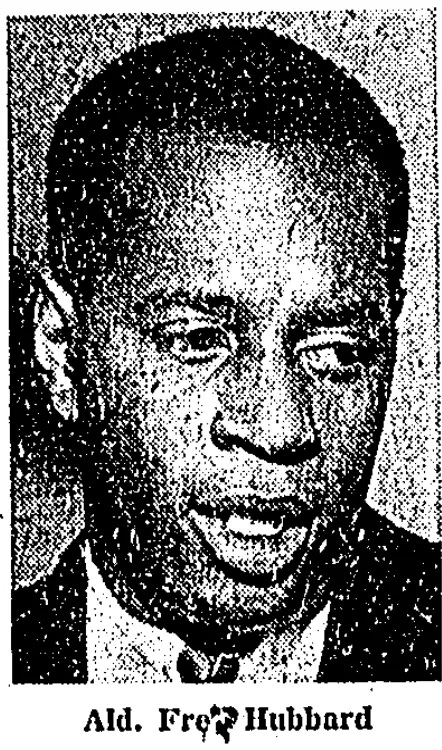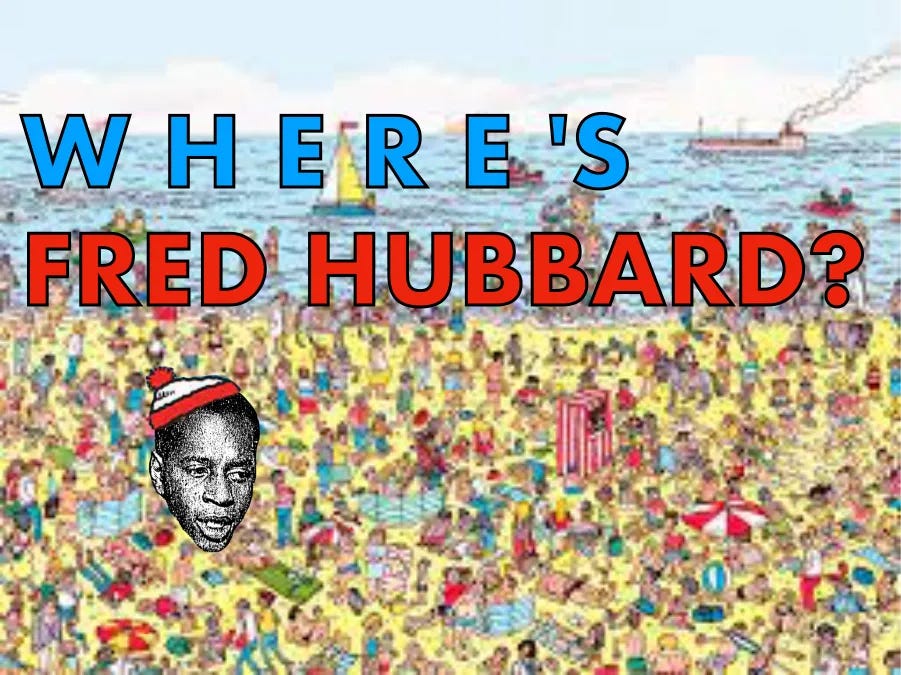Who Is Chicago's First Convicted Alderman?
Chicago History Rabbit Hole
To access all website contents, click HERE.
Welcome to Chicago History Rabbit Hole! Regular readers know that when we dive into a lengthy digression following some interesting tidbit within a post, the Chicago History Rabbit appears as a heading. You’ll also find some new rabbit hole discoveries in this section, and I’ll also gradually gather the many existing rabbit holes elsewhere on the site right here, so they can burrow together in one place.

In 2025, our most freshly convicted alderman is former Ald. Edward Burke (14th). Burke stood trial in federal court in 2023 on an ironic 14 counts of racketeering, bribery and extortion. After 13 aldermanic terms and 54 years in City Council, he was the acknowledged dean of the City Council, facing a potential 20 years in prison for crimes as silly as holding up a driveway permit for a Burger King.

Burke was often been called the most powerful alderman in the Chicago City Council, because he indisputably was exactly that as chairman of the Finance Committee—from 1983 to1987, and again 1989-2019. He resigned from the Finance chair after his indictment, and chose not to run for re-election. That was wise, since he was convicted in 2023 of most of the charges against him—though he ended up serving a mere 10 months in prison.
Just how many other aldermen are in the notorious club Burke recently joined? The cited number varies, going as high as 40 since 1973. I go with the more conservative #34, leaving out aldermen convicted after their time in the Council (James Laski, William Beavers, Ed Vrdolyak, Joseph Martinez) or who escaped conviction by wearing a wire (Danny Solis) or getting too old and infirm to stand trial (Carrie Austin).
Still, 34 in 52 years is one aldermanic jailbird every 18 months, a healthy clip.
Every time a Chicago alderman gets convicted, an angel gets his wings.
Just kidding! Let’s try that again:
Every time a Chicago alderman gets convicted, newspapers publish a list of previously jailed colleagues.
In print form, the obligatory convicted alderman article looks like a strange sort of yearbook with all the little squares of pictures, a name beneath each and a line or two describing the subject’s extracurricular activities—whoops, I mean crimes. The pictures go by year, rather than alphabetically by last name.
The Yearbook of Shame always starts with Ald. Fred Hubbard (2nd), convict graduating class of 1973.
In 1973, Fred Hubbard pled guilty to his own 16-count federal indictment. Two years earlier, Hubbard had disappeared along with $100,715 from the Chicago Plan for Equal Opportunity, the federally-funded program he ran tasked with placing minorities in construction jobs. Fred Hubbard stayed disappeared for a long year…
…until FBI agents found him playing poker in California. As Chicago Today reported, “Including the $50 he had just won at the poker table,” Hubbard’s “assets came to $151.25.”
See Mr. Hubbard’s Wild Ride for the full story of Fred Hubbard’s truly Chicago-style Greek tragedy.
Interestingly, Fred Hubbard and Ed Burke entered City Council together in the freshman aldermanic class of 1969. So now Hubbard is first on the list of convicted aldermen, and Burke is last—until the next one goes down, of course.
But wait. Chicago was incorporated as a city in 1837, and until 1923 there were two aldermen per ward. Does anyone think not a single one of them got caught red-handed and convicted before Fred Hubbard? Nope. When we begin counting in 1973, we’re at least 101 years late.
I base that number on the Chicago Tribune archives, after seeing no reports of early convicted aldermen in my accumulated Chicago history books. The Trib’s digitized archives begin in 1849, missing only the first 12 years of Chicago’s history as an official city. That’s close enough. Some quality time teasing through the archives searching “alderman” or “ald” combined with various other key words eventually led me to January 20, 1872 and Chicago’s forgotten man, Alderman Herman O. Glade.
Sadly, we have no picture of Ald. Glade. But his 19th century headlines are something to behold:
Ald. Herman O. Glade (11th), a liquor dealer, was convicted of bribery after a five-day trial. Charles H. Reed, Esq. opened for the state. The language is astonishing, so I’ll quote:
“He [Reed] recapitulated the nature of the charge made in the case, and claimed that he would show the delivery to Glade of the check of $150, by William Reinhardt, with the agreement that he, Glade, was, as an Alderman, to secure the removal of the hay stand from Randolph street, Reinhardt and others seeking its removal on the ground that it was an encumbrance to their property. He designated the crime as one of great infamy, and dangerous to society, because the betrayal of the public trust involves the whole community.”
Translation for 21st century ears, with some additional background: William Reinhardt operated a butcher shop at 158-160 Randolph, which at that time was between Union and Halsted. Reinhardt testified there had been a hay market in the middle of Randolph between Desplaines and Halsted, for several years. Literally a hay market. Loads of hay were brought there by wagons, dumped into a stand, and then sold by hay dealers. Nearby businessmen like Reinhardt considered the hay market a nuisance.
Reinhardt the butcher didn’t specifically say in court that he asked Ald. Glade to get rid of the hay market, but he testified that Ald. Glade entered his butcher shop and asked if Reinhardt had collected money to pay for “expenses” to remove it. Reinhardt said he wrote Glade a check. In court, Reinhardt identified his signature on the back of the returned canceled check, which had been cashed and deposited into the account of Glade’s liquor business.
“Mr. Sidney Smith closed the case for the people,” reported the Trib. “He remarked upon the length of time which had been occupied in the trial, accounting for it by the statement that it has become necessary to preserve the existence of the nation from an enemy more insidious than rebellion or invasion, and this is the first experiment to see if that enemy, modern official corruption, can be put an end to.”
The jury took an hour and 15 minutes to return the verdict.
After the trial, reporters tried to get a comment from convicted Ald. Glade. Here we see that while some things never change—Chicago aldermen going to jail—some things do. Instead of surrounding Ald. Glade as he left court and shouting questions, the reporters went to see Glade that night…in the County Jail.
“When asked if he had a statement to make,” wrote the Trib reporter, “he replied, ‘You make a statement to me: the newspapers know more about this thing than I do.’”
That’s 1872-speak for “No comment.”
“Glade is not overburdened with intelligence,” the Trib reporter observed.
A reporter for the Chicago Times was even less successful, per the Tribune:
“A Times reporter, who represented that he was employed by the Post, essayed to converse with Glade last evening, but his visit was not at all satisfactory. He knew that if he acknowledged that he belonged to the Times, he could obtain no information, and the subterfuge was not as successful as he anticipated.”
It’s strange that Chicago papers forgot about Ald. Glade, since before digitized archives, newspapers maintained their own “morgues” of newspaper clippings on important topics. Instead, Fred Hubbard’s 1973 conviction somehow became Year Zero for aldermanic convictions—even though, of course, Hubbard was not even the first alderman convicted in the 20th century.
That prize goes to Ald. J.J. Brennan (18th), convicted in 1903 along with a couple of associates. Brennan paid two reporters to pose as two specific voters and cast votes in an election for judges. The two reporters testified that Ald. Brennan came inside the voting booth with them and marked the ballots.
The Tribune reporter on this case also went in search of comment later that evening. The reporter didn’t get a good quote, but he did capture this iconic Chicago scene:
“Ald. John Brennan łatę last evening sat at the desk behind a railing just inside of the door of his saloon at 114 West Madison street and read the newspapers,” the Trib reporter recounted. “The customers who drifted in during the evening were served by the proprietor himself, and in between drinks the alderman went back to his papers.”
If you came here from social media, you may be wondering where you landed. “Roseland, Chicago: 1972” is the story of Steve Bertolucci, 10-year-old Roselander in 1972, and what becomes of him. Check it out here. Immerse yourself in 1972 via other site sections including THIS CRAZY DAY IN 1972, a peek into Chicago newspapers that year, and Mike Royko 50 Years Ago Today. When a post uncovers some interesting Chicago ephemera, we also fall down the Chicago History Rabbit Hole, now being gathered in its own section. Find all the sections on the home page here.
To get new Chicago History Rabbit Holes and other section posts directly to your emailbox, SUBSCRIBE FOR FREE!











I had no idea that this is actually written by Cate Plys until last week.
And that Trib line that Alderman Glade isn't overburdened with intelligence applies to almost all of them today. All you need to do is look at that one idiot that wants to require permits for the Little Free Libraries! He seems to be channeling that previous idiot, Ginger Rugai who has burdened garage sale operators with getting permits because one person in her SW Side ward was running a garage sale every week!